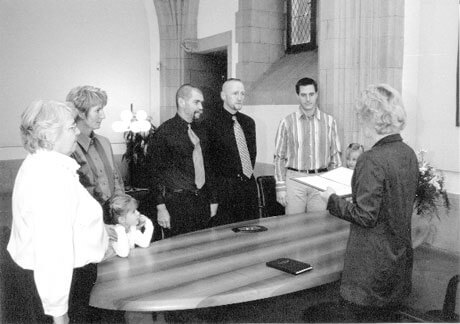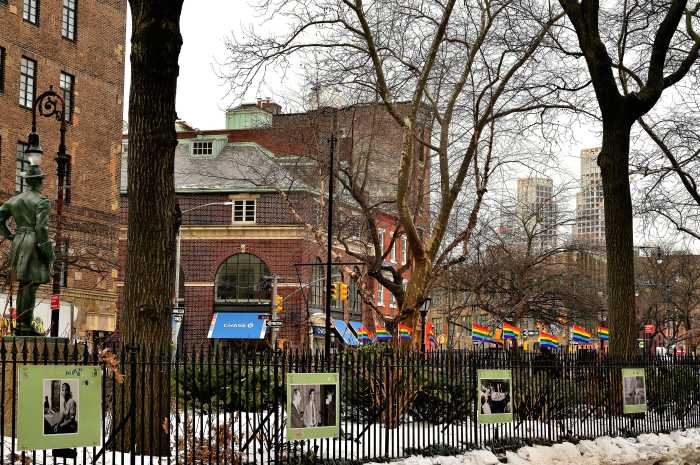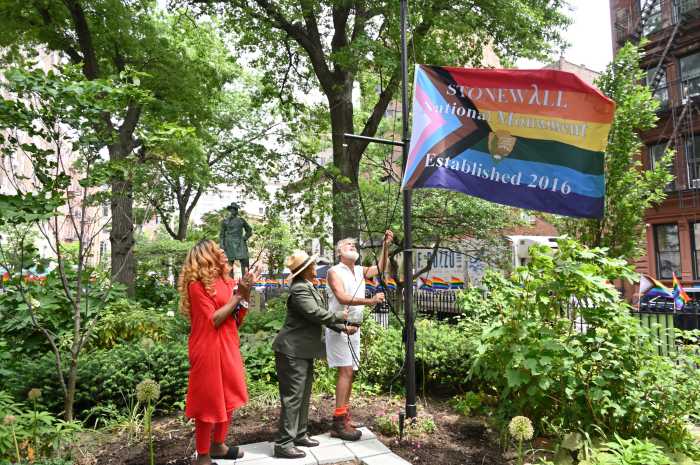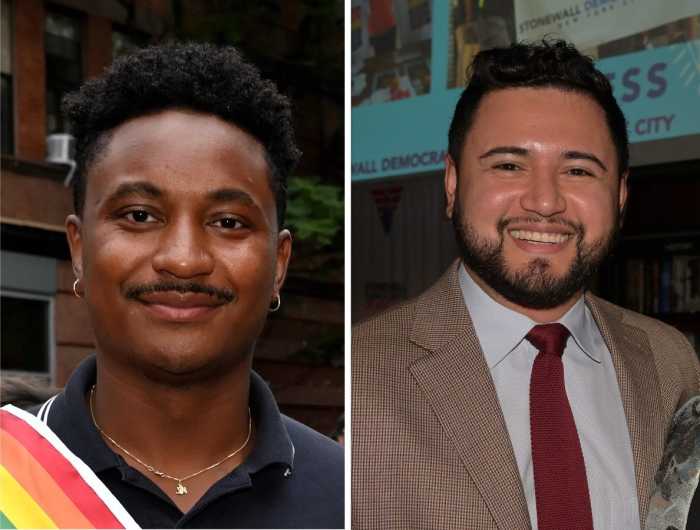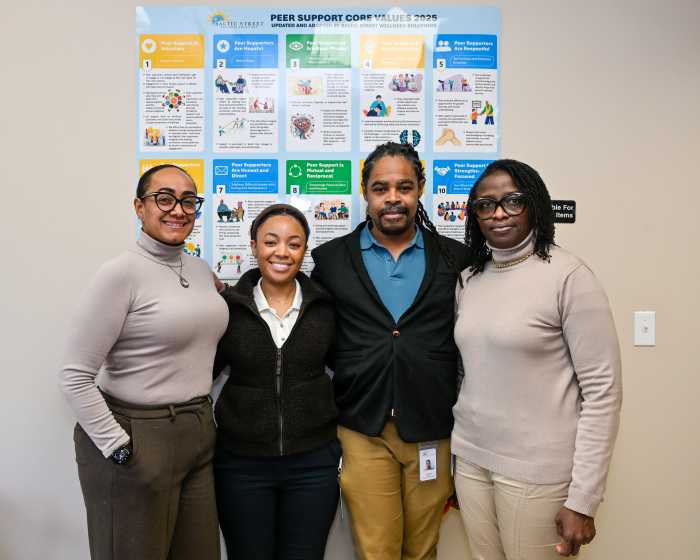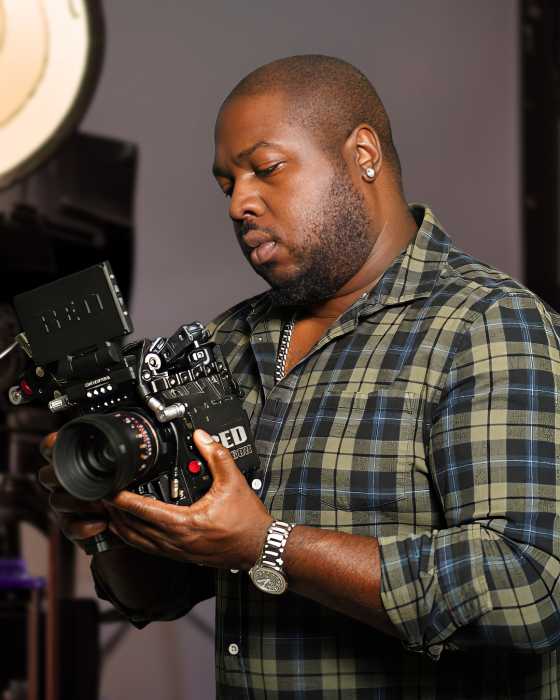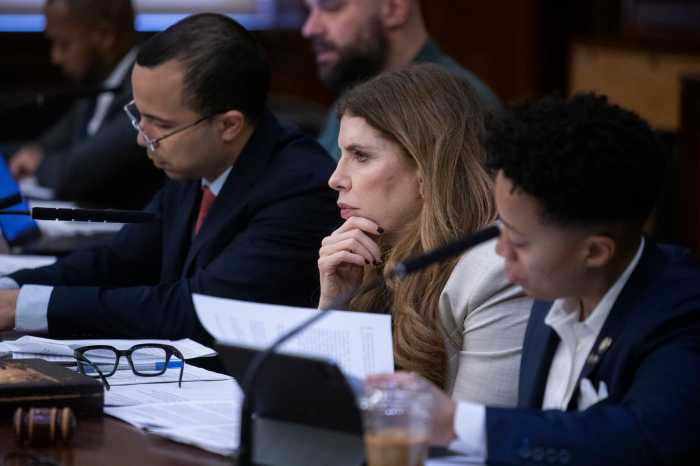San Francisco gay man leaves U.S. to join partner barred from entry
As you read this, Bill Deitsch will have already gotten on a United Airlines flight from San Francisco to Frankfurt with a suitcase containing a supply of his AIDS medications, a small box of antique jewelry that had belonged to his mother, his U.C. Berkeley architecture diploma and a large box of Sweet and Low. After 54 years in California, most of it in San Francisco where he was born, Deitsch, 54, is moving to Koln, Germany, to be with his partner, Ralph Hoffmann, because Hoffmann cannot be here with him.
Behind him in San Francisco he is leaving a tranquil house with a view of the bay in the city’s wooded Glen Park neighborhood, and his architecture and contracting business. He is leaving, forever he says, because he had to make a decision between his love and his life. He chose love. The Sweet and Low, he said, is one of the few American things he can’t get in Germany.
The pair’s romance started ordinarily enough. In 1995, Deitsch, a mustached motorcycle-riding architect and contractor, met Hoffmann at a bar when, as a tourist, Hoffmann spied Deitsch across the room. On the phone from Germany, Hoffmann, now 41, remembered that the two were drawn together almost immediately. With the upturned ends of his waxed moustache and a spiky haircut, Hoffmann said, “I found him very sexy, very attractive. And his eyes. There’s something in his eyes that’s like boyish, but very masculine. He came over, we talked, and it happened. He talked a little German. I spoke almost no English. I stayed overnight with him, and the next afternoon, asked him for a second date.”
The pair spent the rest of Hoffmann’s planned ten-day stay in San Francisco together. Hoffmann had booked tickets to go on to Chicago and New Orleans, but cancelled those trips to be with Deitsch.
At the end of his planned holiday, Hoffmann went back to Koln. “I arranged everything. I sold my car. I sold my motorcycle,” Hoffmann said. As their romance blossomed, Hoffmann stayed in the U.S. for three to six months as his tourist visas allowed.
“It was love at first sight. Now, they’re totally married and involved,” said friend Christo Bresnahan.
After three years, Hoffmann said, it was very difficult to get further tourist visas, so the pair decided that Hoffmann should go to school. He enrolled in San Francisco’s City College, and got a student visa. The visa expired this past March, after Hoffmann’s graduation, and he was ordered to leave the country on July 27. He did, but not before he tried one more gambit.
He got false affidavits from his German mother and from Deitsch, saying that he had been born in the U.S., and made a fraudulent application for a U.S. passport. He was caught.
“There was a pounding on the door,” Deitsch said. “Ralph Hoffmann, you’re under arrest,” shouted one of the three Homeland Security (D.H.S.) officers who barged in, guns drawn, in flak jackets with the word “Agent” painted on them in bright yellow letters, along with four regular San Francisco cops.
“They put him in their car and drove off,” said Deitsch. According to Deitsch, the D.H.S. had checked in Germany and discovered that Hoffmann had, in fact, been born there.
“I was shaking. I was hysterical. The Office of Homeland Security was taking my lover, my life mate. They’re taking him away to God knows where. Guantanamo Bay,” Dietsch said. Dietsch said the officers originally suspected that the pair were a German terrorist cell, and it wasn’t until Dietsch produced a stack of pictures and old letters from his mother that he managed to convince them that he was a legitimate U.S. citizen.
Hoffmann wasn’t taken to Guantanamo Bay, but the D.H.S. did ultimately deport him back to Germany last July.
A few days later, on the evening of August 3, as Deitsch was riding his motorcycle on Castro Street, his arm caught the mirror of a parked cab, and thrown off balance, he fell. A following car hit him. Unconscious, an ambulance rushed him to San Francisco General Hospital where doctors operated on him to relieve a hemorrhage inside his skull that was putting pressure on his brain.
Two days later, armed with a valid tourist visa he hoped would get him into the country, Hoffmann rushed to buy a $5000 business class ticket on Lufthansa to be with his partner in San Francisco.
But probably because of his fraudulent passport application, Hoffmann was on a watch list in the Immigration Services’ computer. When he got to the main immigration checkpoint at the airport, he was led to a windowless room deep in the airport, where he was chained to a chair.
“They call it the secondary,” Hoffmann said. “It’s just a white room with 25 or 30 chairs, a desk in front, a stand on the desk with numbers from one to ten. You put your folders in the slots and they call your name.
“There came many Mexicans or Asians or Chinese. They just make fun of them and they make little jokes. They know people don’t understand. It’s not funny to sit there and see all of this, especially when you’re chained to a chair.”
Finally Hoffman was given a choice of spending four to five days in jail while waiting for an immigration judge or going back to Germany. Told by an immigration official that he could get a new visa and gain entry quickly if he went back, after nine hours of waiting, Hoffmann bought a $4000 ticket back to Frankfurt, and away from Deitsch.
The airport official had misled Hoffmann, who, upon returning to Germany, was told by a U.S. embassy staffer in Cologne that the earliest appointment he could have was September 12. Even with the intervention of San Francisco’s Rep. Nancy Pelosi, the Democratic minority leader in the House of Representatives, who wrote to the D.H.S., Hoffmann was never allowed to come back to the U.S. to help his partner in his recovery.
Deitsch has already undergone three surgeries, one in which doctors removed a portion of his brain to relieve pressure inside his skull.
While Deitsch recuperated, Hoffmann was stuck in Germany. “I am in the middle of a nervous breakdown,” he said at the time. “I can’t do anything to get back. I miss him so. I talk to friends almost every day. I call the hospital. I want to be there with him. I can’t do much, just to give him the feeling that I’m there, hold his hand, and be there when he wakes up.”
But according to Leslie Bulduk, of the gay immigration rights organization Love Sees No Borders, Hoffmann and Deitsch are lucky. Most bi-national couples don’t have the luxury of being able to move to a country, like Germany, that recognizes gay unions and allows their citizens to bring their partners into their country. Germany is one of 16 countries including the UK, Australia, Belgium, Denmark, France, the Netherlands and, most recently, Brazil, that with differing rules recognize same-sex couples.
Now Deitsch has a Lebens-partnerschaftsurkunde, a life partner’s certificate, which got him a Versicheerten Karte, a health care card that provides him with free health care in Germany, and an elaborate sticker in his U.S. passport that allows him to come and go from Germany whenever he pleases.
Adam Francoeur, of New York’s Lesbian and Gay Immigration Rights Task Force, says that he thinks that Deitsch’s case is particularly horrible, and an extreme example, but noted that it is very common for an American gay or lesbian partner to have to move.
The problem is even worse for couples who have children. “Imagine a child who is living with a same-sex couple, where one of the moms has to worry about being sent away,” Francoeur said. “It inflicts such terrible cruelty on these individuals—just because U.S. law does not recognize their relationships.”
Tim Miller, a gay performance artist and activist, talked about the situation he and his Australian partner Alistair McCartney faced.
“A heterosexual American citizen can meet someone from a foreign country at 2 a.m. tonight at some sleazy nightclub in L.A., drive five hours to Las Vegas and get married, and the very next day go to the I.N.S. and pretty much immediately get a ‘fiancé’ green card that will eventually allow them to remain together in the U.S. Unless the straight person’s partner blew up a bridge in Bolivia or something, all heterosexual marriages are given immigration rights. On the other hand even though I am a U.S. citizen and my Australian life partner Alistair and I have been together for almost eight years, our relationship—our family—is given no respect or value in America.”
Miller is, he said, “hanging on in L.A. for the present.” His partner Alistair has a few months left on a work visa as a teacher and Miller is applying for a lottery for a “diversity visa.”
“It’s a crap shoot,” he said. “The lottery hands out about 100,000 green cards, but the odds are not much better than the California lottery.”
This congressional session, Rep. Jerrold Nadler (D-New York) introduced the “Permanent Partners Immigration Act” which would give same-sex partners the same immigration rights as heterosexuals.
The bill has 119 sponsors in the House, including Pelosi. Sen. Patrick Leahy (D-Vermont) introduced companion legislation in the Senate that now has nine co-sponsors. Neither of New York’s Senators has agreed to sponsor the bill.
Most of New York City’s congressional delegation has signed on, except for Staten Island Rep. Vito Fossella, a Republican, and Rep. Carolyn McCarthy, a Nassau County Democrat.
Despite its third year in the House, none of the bill’s advocates, including Winnie Stachelberg of the Human Rights Campaign, gives it a chance of reaching the floor of either chamber.
There are no reliable statistics on the number of bi-national couples in the U.S. Francoeur estimates the number to be in “the many tens of thousands.” Because many of the couples live shadow lives and avoid detection, the issue does not get much attention. Many undocumented partners remain at the fringes of the law, holding on to tenuous, and often technically illegal, student and work visas.
“These bills will not pass in the second session of Congress that starts January 4,” Stachelberg flatly said.
Short of the bill’s passage, there’s not much hope available for other U.S. gay bi-national couples. As recently as 1990, being gay was considered a legitimate reason for the I.N.S. to deny an application for any type of entrance visa.
—————————————————–
The Immigration Task Force is now ten years old but has only three staff and an annual budget of only $200,000. To celebrate their anniversary, they will hold a benefit at Boylan Studios (601 West 26th St., 14th Floor) on February 8 from 6-9 p.m. Tickets are $100 and are available on their web site at http://www.lgirtf.org/ or by calling 212-714-2904 x21. The benefit will honor former Attorney General Janet Reno.

